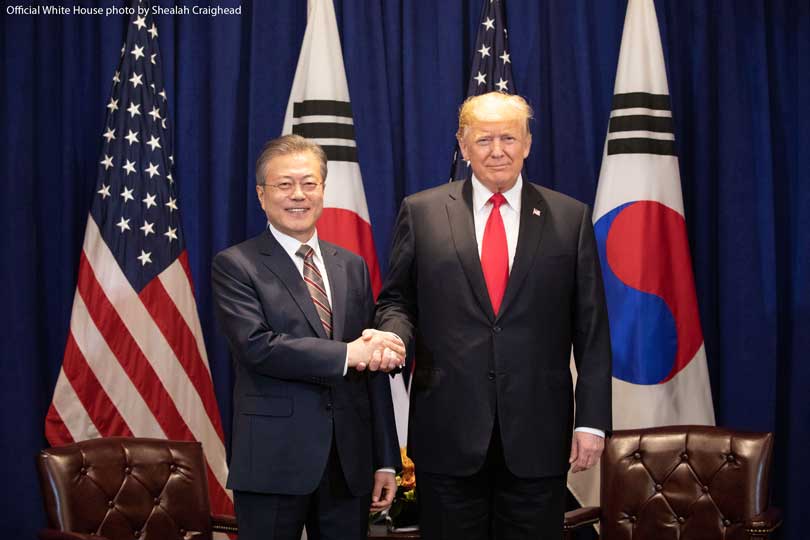By Jessica Domel
Multimedia Reporter
After more than a year of talks, the United States and South Korea signed an updated trade agreement Monday.
The new Republic of Korea-U.S. Trade Agreement (KORUS) continues a phase-out and elimination of tariffs for agricultural exports and implementation of scientifically-based trade rules.
“We are entering into a new KORUS agreement that is a better deal for the entire United States economy, including the agricultural sector,” U.S. Secretary of Agriculture Sonny Perdue said. “This represents an important improvement in trade relations between our two nations, building on long-standing cooperation we have enjoyed.”
KORUS includes a quota to limit exports of Korean steel to the United States, an increase in U.S. auto exports to South Korea and extends current U.S. tariffs on imported trucks from Korea.
“This agreement adds to the momentum building for President Trump’s approach to trade, which is to stand strong for America’s interests and strike better deals,” Perdue said. “I am optimistic that the dominoes will continue to fall: KORUS, then a new NAFTA, and new agreements with the European Union, Japan and, most notably, China.”
Since KORUS went into effect in 2012, the United States’ trade deficit in goods with South Korea increased by 75 percent from $13.2 billion to $23.1 billion.
The overall deficit increased by 57 percent from $6.3 billion to $9.8 billion, according to the U.S. Trade Representative’s (USTR) office.
Talks to renegotiate or update KORUS began in August 2017.
The U.S. initially requested the schedule to eliminate tariffs on agricultural goods be accelerated, but no changes to the timeline were made in the update.
The deal has increased agricultural exports from the U.S. to South Korea from $5.4 billion to $6.9 billion annually.
“It’s an imports market for U.S. ag products,” Veronica Nigh, economist for the American Farm Bureau Federation (AFBF), said.
South Korea is now the U.S.’ sixth largest agricultural export market with purchases of corn, soybeans, wheat, poultry, eggs and meat products.
“Renewal of our trade deal with South Korea is much-needed good news and help for our farmers and ranchers as the agricultural economy struggles,” AFBF President Zippy Duvall said. “Securing export markets for our products is critical, and we encourage the administration to continue to push for conclusion of other trade agreements, such as an updated NAFTA agreement with Canada and Mexico.”
As a result of KORUS, South Korea is phasing out its 40 percent tariff on U.S. beef.
U.S. beef exports to China have increased 82 percent since KORUS was initially signed in 2012 from $582 million to $1.06 billion in 2016.
In 2017, South Korea was the second largest import of U.S. beef, by value, in the world. It was the fourth largest before the deal was signed in 2012.
Pork sales from the U.S. also grew under KORUS from $192 million in 2010 to $475 million in 2017.
“Our negotiators also should continue pushing to remove barriers to U.S. ag trade in other parts of Asia,” Duvall said. “As Agriculture Secretary Sonny Perdue recently stated, now would be a good time to take a fresh look at the Trans-Pacific Partnership, an agreement that Farm Bureau has estimated would boost U.S. agricultural exports by $4 billion per year. Rejoining TPP negotiations would send a clear message to other nations, such as China, that the U.S. is serious about growing key markets for our agricultural products around the world.”
In 2017, U.S. total imports of agricultural products from Korea hit $548 million. Leading categories include: processed fruit and vegetables, valued at $94 million; snack foods, valued at $48 million; other fresh fruit, valued at $32 million; fresh vegetables, valued at $18 million; and other dairy pr

